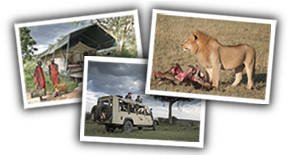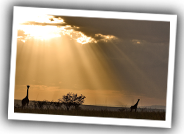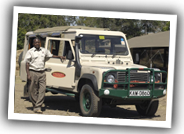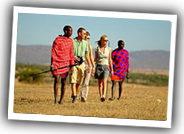Kenya is famous as the original safari country and has over 40 national parks, game reserves and wildlife conservancies where visitors can see a huge variety of wild animals roaming free in their natural habitat. Some of the best-known wildlife areas offering opportunities to see the biggest variety of animal species are Amboseli, Lake Nakuru, Samburu and Masai Mara, while others include Tsavo, Meru, Laikipia, the Aberdares and Mt Kenya.
What are the key differences? Click on the links below to find out what the major differences are between them.
- National Parks and National Game Reserves
The National Parks and Game Reserves have been set aside by the government for the protection of wildlife and are open to the public. Tourist numbers can be dense within the most popular parks and in the high season there are often a large number of visitors in any one day. It is not uncommon to share an animal sighting with several other tourist vehicles. There are also restrictions in place within some of the National Parks prohibiting open sided vehicles, walks and night game drives inside the park.
- Wildlife Conservancies
Recently wildlife conservancies have been set up on community-owned land adjacent to the parks. The conservancy concept was pioneered by Gamewatchers Safaris and is a form of sustainable tourism. The Conservancies which Gamewatchers is supporting are on large tracts of community owned land made up of individual parcels leased from the community landowners and set aside exclusively for wildlife adjacent to National Parks in areas which are unfenced. These Wildlife Conservancies provide additional habitat and a safe haven for the animals. The communities receive a guaranteed monthly income offering an alternative to farming and animal husbandry and also have opportunities for livelihoods, working in the camps and as Conservancy rangers. The conservancy is managed by a warden and rangers to protect the animals and virtually no poaching occurs as the community is invested in protecting the animals.
A conservancy safari offers a private and more exclusive safari experience away from masses of tourist vehicles. With a limit of only 1 tent per 700 acres, they have all the wildlife without the crowds!
To see more details of the wildlife parks and reserves in Kenya please click here.








